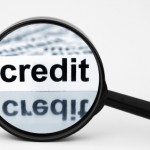So you are in the market to buy a new home or maybe you are thinking about refinancing your mortgage to take advantage of the historically low rates. What should you do to set yourself up for the best possible terms on the new mortgage?
Check your credit!
I have dealt with many clients all over Ohio, from Cincinnati to Columbus to Cleveland, and one thing I see over and over is that most people do not have any idea what their credit report contains. Maybe an incorrect collection, or a misreporting 30 day late on a credit card, or worse yet a judgment. Many credit issues can be resolved easily before ever applying for a mortgage. Thus, setting yourself up for the best possible mortgage when the time comes.
One thing to keep in mind is that when you apply for a mortgage, whether that is an FHA refinance, a USDA purchase, or a loan with Fannie Mae or Freddie Mac, when your loan officer pulls your credit report it might not match up with the credit scores others may have pulled. The reason is that when you buy your credit scores or when your credit monitoring service provides you your score it is based on the Generic Scoring Model, whereas a credit report pulled by your mortgage Loan Officer uses the Industry Scoring Model.
Now let’s look at some of the steps that you can take to put yourself (and your credit report) for the best terms on your new mortgage:
1. Pull your free credit report
Each of the 3 credit bureaus (Experian, Equifax, Transunion) allow you to pull your credit report for free once per year. This will allow you to check your outstanding credit, payment history, and current balances. Personally, I pull my Transunion credit report in April, Experian in August, and Equifax in December. This way I can keep tabs on my credit report throughout the year, all for free.
You can get access to the free credit reports at Annual Credit Report
2. Review your credit report for errors
Once you have your credit report (whether it is all three or just one of the Credit Bureaus) you can check it for mistakes. Is there an incorrect collection account showing? Did a creditor make a mistake and report your payment 30 days late? If you find any errors on your credit report, you will be able to dispute the error through the credit bureaus website where you pulled the report. Generally you will have to give some documentation showing that it is a mistake and a brief letter explaining the situation. For example, if a credit is reporting a 30 day late payment, you could offer a copy of the cancelled check or bank statement showing the payment posted on time. The credit bureaus will research the dispute and will tell you once they have made their decision, generally within 60 days.
Here is a copy of a standard Sample Credit Dispute Letter
3. Review your outstanding balances
The single quickest way to improve your credit score is to pay down credit card balances. In my experience the magic number is 30% of the limit. Review your outstanding balances on your credit cards and, if possible pay them down to less than 30% of the limit. For instance, on a $1,000 limit credit card, pay the balance down to less than $300.
4. Be ready to satisfy any outstanding judgments
Mortgage lenders do not like judgments for 2 reasons. One, they are considered a major derogatory credit issue. And two, they can become a lien against any property that you own and may affect your lenders claim to 1st lien position (first in line for the money if the property is destroyed or foreclosed on). So be ready to pay the judgment. Make sure that once the judgment is paid that you file any release of lien with the correct court so that it is officially released.
5. Talk to a Mortgage Loan Officer before you have to
It is never to early to talk to a Mortgage Loan Officer and review your credit. They can help you in determining what issues there are, if any, and the steps to take to correct them.
Follow these simple steps and you will put yourself in the best possible position to get the most favorable terms on your new mortgage, whether that be for purchasing a home or refinancing to a lower interest rate or a shorter mortgage term.


[…] Credit Card Balance Each Month (127/365) – Personal Finance for the 99% of Us – justfinance.orgCredit Scores and Getting the Best MortgagePay Off Your Whole Credit Card Balance Each Month (127/365) – Personal Finance for the 99% of Us – […]